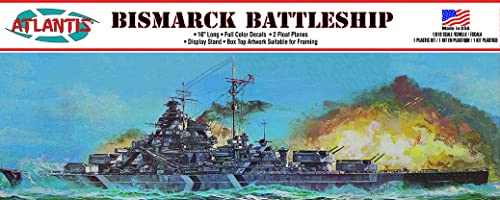| (Contributed - by
Jeff Brundt - 07/10/01) Brief:
A 168% upscale of a classic Estes kit from the mid 1970's. The rocket uses
traditional LMR construction techniques and is designed to fly on 24mm Estes
black powder and some Aerotech RMS motors. I was able to download the fin
patterns from JimZ's web site. I already had the instructions for the original
kit I built over 25 years ago.
Construction:
The main body is standard Estes BT-60 tubing and the 'warp pods' are BT-55's.
Heavy duty paper centering rings are used to mount the BT-50 stuffer/motor tube
in the main body. All the fins were cut from 1/8" sheet balsa after
scaling up the patterns on a photocopier. The various wood dowels that were
used on the original were duplicated using 3/16" dowels from Midwest.
Motor retention is a traditional Estes motor hook for 18 and 24mm motors. The
nose cone is a plastic BT-60 cone I had laying around in my parts bin. It's a
pretty close match to the original plastic one that came with the kit. I'm sure
you could order a semi-custom one from BMS with out much trouble. The shock
cord mount is a 12" cable fishing leader. One end attaches to a screw eye
in a reinforced forward stuffer tube centering ring. The other end has a
48" length of 3/8" elastic tied to it and gets secured to the nose
cone and parachute.
The rocket builds almost identical to the original. Just make sure when you
size the body tube marking wraps that will fit the BT-60 and -55's
circumferences. The actual scale up size is between 167% and 168% when you do
the calculations based on the relative sizes between BT-50 and BT-60. There are
also small differences between copiers so you may have to try scaling at
various percentages until they fit.
You'll have to cut out the various details from poster board or manila
folder material. These details were originally die-cut card stock in the kit.
JimZ has these details so all you'll have to do is download then upscale. I
used a combination of 1/64" ply and posterboard where flexibility was
needed, such as on the curve of a body tube. The decals are what really set the
Atlantis off. I downloaded the decals from JimZ but they are pretty yellowed
with age. After a few hours in Photoshop I had them cleaned up. I then scaled
them up and printed them with my inkjet on good quality photopaper. I had to
make two printed sheets because of the size and length of the final size. Next
stop was Kinko's. They can laser copy your originals onto decal paper. The
results are pretty good. Of course you could order decals from Tom Prestia at
Tango Papa. For this rocket I had wanted to do them myself.
The rocket was painted with Krylon Gloss white then the decals were applied.
After the decals had dried and the details painted I clear coated rocket with
TopFlite's Lustrecote clear spray.
Flight:
I did a rough altitude calculation using AltiCalc. I added the cross sectional
areas of the main body and the warp tubes to determine the final diameter if I
was using only a single body tube. I also used a Cd of .8 since this is a
pretty draggy rocket. Predicted altitude on a D12-5 was 430' with a recommended
delay of 3.8 seconds. Rather than risk an early deployment I did a first flight
on an Estes D12-5. 'Chute prep was no different than any other model rocket. I
used 'dog barf' as wadding then put in the shock cord followed by the Estes
24" parachute and nose cone. I had installed 1/4" launch lugs but
they were tight on my rod so I switched to a 3/16" rod. Even though the
3/16" rod was shorter than the 1/4" one I wasn't worried. Boost was
nice and straight. The chute deployed perfectly right past apogee. My delay
time choice was a good one. The rocket drifted slowly down for a gentle
touchdown in the grass.
Summary:
This was a fun rocket to build and didn't take all that much time to complete;
perhaps two weeks at the most. It makes a nice addition to my 168% upscale
fleet and looks great next to the 168% Mars Snooper and 168% Orbital Transport.
Even though the rocket has a 24mm mount it's really not intended to fly on any
high impulse motors. Though the warp pod pylons are epoxied in place I don't
think they would take the boost from an E18 or E28 RMS motor. I've only flown
this bird so far with Estes D's and I am quite happy with that. I have done
simulations with E11 and F12 RMS motors and feel they would be no problem but
then the altitude more than doubles. And my field where I fly from won't
support that for modrocs. This is a show rocket, designed for nice slow
lift-off's and general fun flying. Here is a
video of the first
flight.
|














